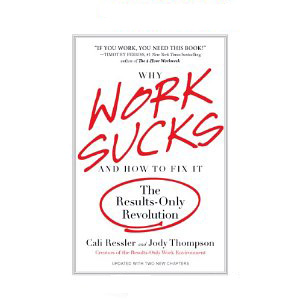As a young woman entering the employment market in the late 60’s, I held a variety of advertising sales and marketing jobs at major corporations. Over the years, as I rose from entry level to upper management positions, I witnessed changes to the corporate culture that were not only senseless, but were also the beginnings of what I refer to as “the great American corporate failure.”
Fortunately, as Baby Boomers entered the workplace in the late 60’s and early 70’s, U.S. corporations were growing and adding employees, however most of the jobs that were created were middle-management positions. The swelled ranks of middle managers discovered that there was little opportunity to rise in their chosen professions due to the stagnant number of upper-level management positions. With competition so fierce, this cadre of middle-managers began surrounding themselves with weak subordinates who were unlikely to be candidates for higher positions, and thus not a threat. Corporations inexorably crept toward a culture where teamwork was valued above all else and individual creativity was quashed. Simultaneously, corporations began promoting financial officers to the position of CEO, and America entered an era of corporations controlled by “bean-counters” who operated on a purely analytical basis and were completely out of touch with the creative process.
By the time I had reached the ranks of upper management in the mid-80’s this unproductive culture was in full bloom and corporations were beginning to show signs of wear. Bloated employment, reduced productivity, and poor management practices combined, among other factors, to create an environment that was ripe for the greenmail practices that were so common throughout the mid-80’s. About this time, I left the corporate world and struck out on my own. Perhaps because I have been in charge of my own destiny for so long, I was surprised recently when a friend remarked that her corporation penalizes their managers for being at their desks. She explained that her corporate culture embraces the idea that the manager’s time is best spent in meetings – the day-to-day work is meant to be performed by the employees whom they manage.
Meetings and mission statements are two of the biggest reasons I left corporate life. Both are a waste of time. Firms have lofty mission statements that give lip service to things like customer service and valuing the employee, etc., but with few exceptions, customer service is a lost art in this country. Rather than spending hours in meetings or concocting meaningless mission statements, managers’ time would be better spent actually training employees, listening to employees, and devising programs that would create a work environment conducive to employee satisfaction and retention. If I started a company today, I would allow flex-time, encourage the employees to participate in the building of the company wherever and however possible, keep meetings to an absolute minimum, provide a concerted and on-going training program, spend the bulk of my time talking to employees and customers, and reward creative thought and activity. I would not mico-manage. I would surround myself with people who are smarter than me and more talented than me. I would step back from myself and let the process flow. And that is just what is beginning to happen in select companies around the country.

ROWE might be dismissed as a crazy idea except for one thing: it works. When the retail chain Best Buy adopted the practice, not only did workers applaud, but productivity spiked and turnover plummeted. Ressler and Thompson started developing ROWE while working at Best Buy seven years ago. Now the pair are consultants, spreading the word about the need for a workplace revolution, and helping firms put their ideas into practice.
The corporate people I dealt with over the years always told me my ideas were crazy and I was often in trouble because of my creative thinking. After reading this article, I feel entirely vindicated.
